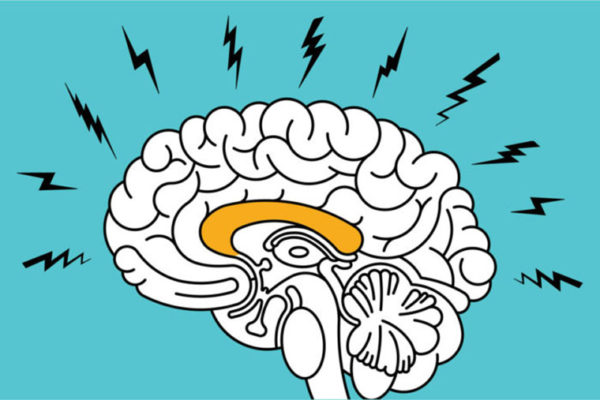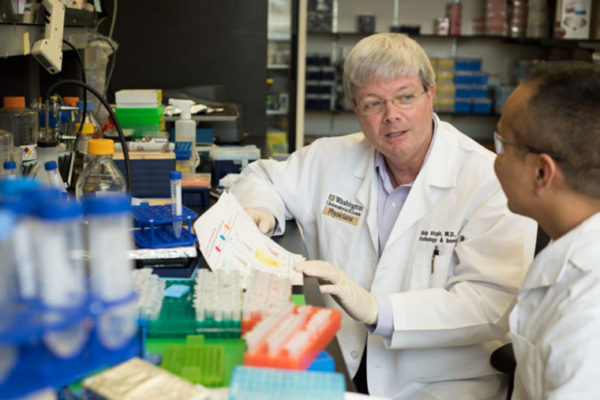Anxious? Cellular roots of anxiety identified
New research from the School of Medicine sheds light on what might be happening in an anxious brain.
Aggressive UTI bacteria hijack copper, feed off it
Researchers at the School of Medicine have shown that E. coli bacteria — those at the root of hard-to-treat urinary tract infections (UTIs) — hijack trace amounts of copper in the body and use it as a nutrient to fuel growth. The finding may open the door to treating UTIs using drugs that work differently from traditional antibiotics.
Blood test IDs key Alzheimer’s marker
A study led by researchers at the School of Medicine suggests that measures of amyloid beta in the blood have the potential to help identify people with altered levels of amyloid in their brains or cerebrospinal fluid. The test could identify people who have started down the path toward Alzheimer’s years before symptoms occur.
Vaccines protect fetuses from Zika infection, mouse study shows
A new study in mice shows that females vaccinated before pregnancy and infected with Zika virus while pregnant bore young with no trace of the virus. The findings offer evidence that an effective vaccine administered prior to pregnancy can protect vulnerable fetuses.
Strategy to battle opioid epidemic encourages multilevel approach
Jose A. Moron-Concepcion, associate professor of anesthesiology the School of Medicine, studies the emotional component of pain and opioid receptors. He discusses some of the key points addressed in a new report on opioid abuse issued by the National Academies of Sciences, Engineering and Medicine.
Surgery for early prostate cancer may not save lives
Part of a major 20-year study, new research provides further evidence that surgery is unnecessary for early-stage prostate cancer, although some men whose disease is further along may benefit.
Sleep, Alzheimer’s link explained
Research from Washington University School of Medicine, Radboud University Medical Centre in the Netherlands, and Stanford University shows that disrupting just one night of sleep in healthy, middle-aged adults causes an increase in a brain protein associated with Alzheimer’s disease.
Type 1 diabetes risk linked to intestinal viruses
A new study led by the School of Medicine has found that viruses in the intestines may affect a person’s chance of developing Type 1 diabetes. Children who carried a specific virus belonging to the Circoviridae family were less likely to head down the path toward diabetes.
Malaria drug protects fetuses from Zika infection
Studying pregnant mice, researchers at the School of Medicine found that Zika virus manipulates the body’s normal barrier to infection. They also found that a malaria drug, hydroxychloroquine, interferes with this process, protecting the fetus from viral infection.
Popular heartburn drugs linked to higher death risk
Popular heartburn drugs called proton pump inhibitors (PPIs) have been linked to a variety of health problems, including serious kidney damage, bone fractures and dementia. Now, a new study from Washington University School of Medicine in St. Louis shows that longtime use of the drugs also is associated with an increased risk of death.
View More Stories









